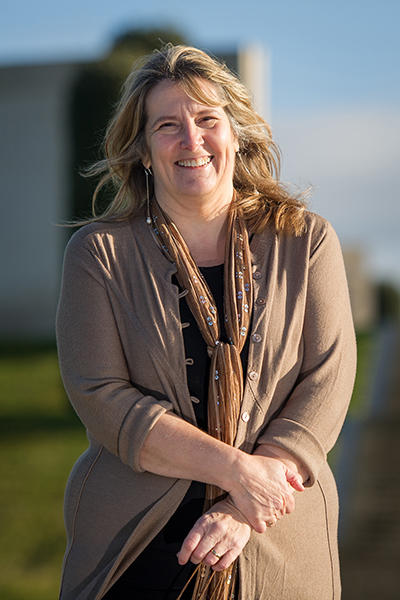University Historian Brings to Life Women’s Experience of Wartime Evacuation
Monday, 30 September 2019
A University of Worcester historian’s book aims to shed light on the untold, and she believes often overlooked, experiences of women during the Second World War evacuation.

Stories about evacuation inevitably focus on the millions of children, including the thousands that came to Worcestershire, who were relocated from areas considered to be in danger from bombing or invasion, to the countryside. Now Professor of Cultural History, Maggie Andrews, hopes to redress that balance, telling the effect this had on families and women’s domestic lives.
“I want to put mothers and women back into the evacuation story,” said Professor Andrews. “As mothers, foster mothers, teachers and voluntary workers in women's organisations, women were at the forefront of the evacuation experience. They had to make the heart-breaking decision to have their children evacuated, had to look after other people’s children for years, and teachers’ lives were massively disrupted as many were evacuated with the children and had to look after them and live in lodgings. It was very much a women's story.”
The book, Women and Evacuation in the Second World War, has research carried out in the West Midlands at its heart - particularly Worcestershire and Staffordshire. It includes moving personal stories, such as mothers who brought their children back from evacuation only to have them killed or injured when their school was bombed, teachers who struggled to cope with being evacuated or teaching in temporary, often overcrowded, classrooms, and mothers who chose to be evacuated with their children and spent the war years in the countryside.
Alongside archival research, Professor Andrews used memoirs, autobiographies and oral histories, including 90 interviews undertaken by the Archives and Museum Service in Staffordshire, which she has worked with. She also looked at local newspapers, school log books and records of voluntary women’s groups.
This research revealed how places like Worcestershire were affected. At one point during the Blitz in 1940 and 1941, the Mayor of Worcester claimed there was no more room to take any more in the city. Voluntary organisations like the Worcester Women’s Voluntary Service were tasked with making 900 straw mattresses, achieved with relays of working parties at Worcester’s Guildhall. Records show Malvern Women’s Voluntary Service mended 74 ½ socks, 64 pairs of pants and three vests and one glove in one month in 1940. In Great Malvern, an elderly vicar wrote to the clerk to the council to suggest that his 77-year-old wife was not up to the care of evacuees, claiming that due to her poor health they had not had visitors to stay for five years.
The evacuation was described at the time by the Fabian Social Scientist Margaret Cole as ‘nationalising of hundreds of thousands of women’. “Women no longer had the right to say who would live in their houses,” said Professor Andrews. “It was compulsory to look after evacuees in places of safety. Those who refused were taken to court and could be fined.”
Professor Andrews said evacuation, in many cases, had long lasting effects on the mothers and their relationship with their children. “For some the relationship broke down totally and the children were adopted by their foster parents,” she said. “Some felt alienated from the children who returned to them - much older with different accents and behaviour.”
The book is available from online retailer Amazon.